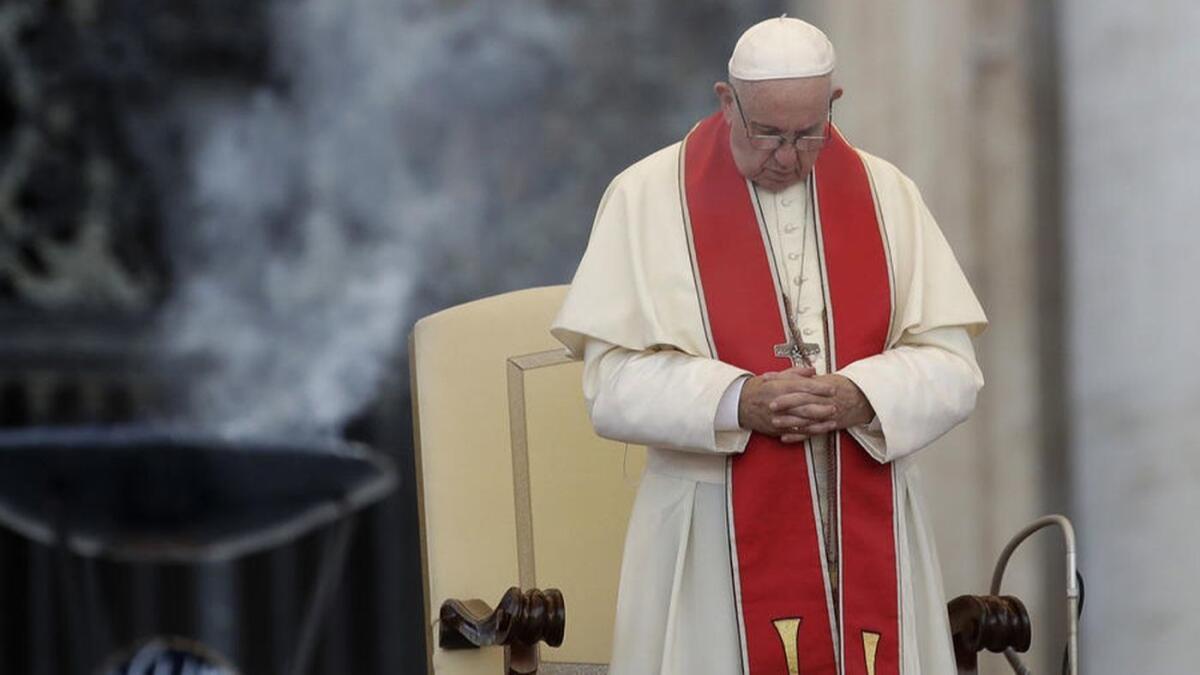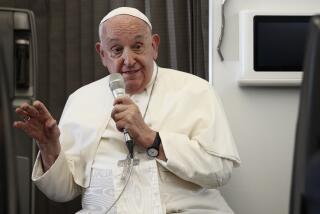Editorial: The pope makes the Catholic Church’s opposition to the death penalty absolute

- Share via
Pope Francis threw the weight of the Catholic Church behind the death-penalty abolition movement on Thursday, releasing a new church teaching that says — quoting a speech by the pope last year — that “the death penalty is inadmissible because it is an attack on the inviolability and dignity of the person.”
That may come as a surprise to Catholics who thought the church already opposed the death penalty. And it did, in most instances, but it had carved out an exception if an execution was “the only possible way of effectively defending human lives against the unjust aggressor” (though Pope John Paul II wrote in his 1995 “Evangelium Vitae” on the sanctity of life that those circumstances “are very rare, if not practically nonexistent”).
Among the reasons for the shift: Changes in detention practices now make prisons sufficient to protect the public from the homicidal. But the new teaching also notes that “there is an increasing awareness that the dignity of the person is not lost even after the commission of very serious crimes.”
Enter the Fray: First takes on the news of the minute from L.A. Times Opinion »
The new teaching isn’t likely to shift the weight of the debate over the death penalty, but in making the adjustment the church (finally) gets it exactly right and follows personal observations Francis has made in the past.
The strongest argument here is that even those who have committed the most heinous of crimes remain human beings deserving of the dignity of life — a view that resonates with the secular world as well. But there’s a more justice-based reason to oppose the death penalty — which has propelled us to bang a steady drum.
The capital punishment system in the U.S. has been rife with errors that have probably led to the execution of innocent people. In fact, one study published in 2014 by the National Academy of Sciences estimated that at least 4% of people on death row are innocent. They — and the 162 death row inmates who have been exonerated since 1973 — are victims of a system that is too susceptible to manipulation by the misdeeds of prosecutors, and the lies and errors of witnesses, to be relied on to divine absolute guilt. Which means capital punishment is not only immoral in concept, as Pope Francis points out, but also unreliable in practice.
Follow the Opinion section on Twitter @latimesopinion and Facebook
More to Read
A cure for the common opinion
Get thought-provoking perspectives with our weekly newsletter.
You may occasionally receive promotional content from the Los Angeles Times.









